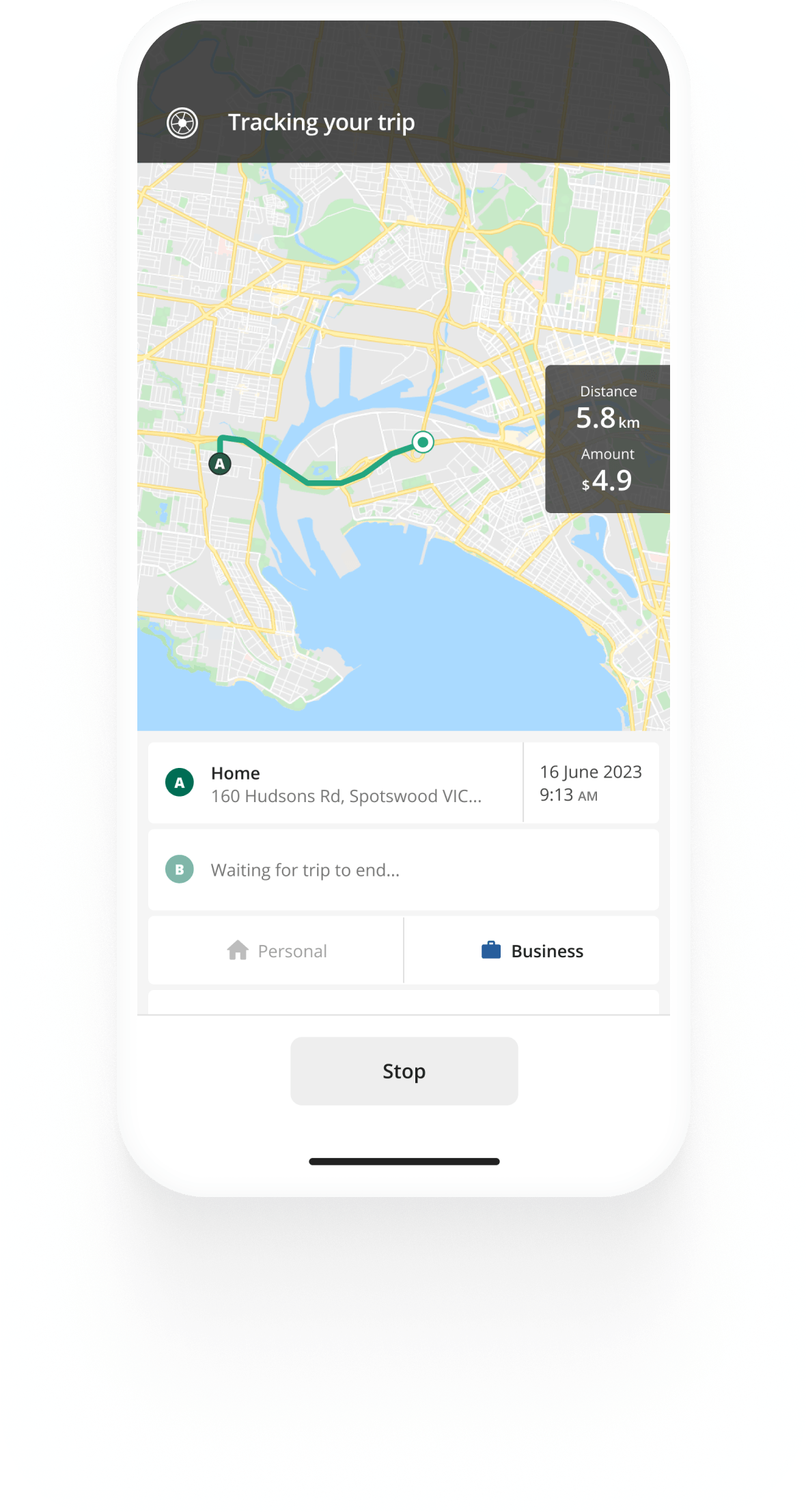Track mileage automatically
Get startedATO Mileage
If you drive your personal vehicle for business purposes, you might be entitled to claim mileage from the ATO. The term “ATO mileage” refers to the schemes the tax office offers for reimbursing employees, self-employed and business owners for such expenses.
Who can claim mileage on taxes?
ATO offers three different schemes by which you can claim your business mileage. Which one you use will depend on your situation.
- As an employee or a sole trader, or in a partnership where at least one partner who’s an individual, you can claim ATO mileage through the cents per km or logbook method
- For any other partnership, you can only use the logbook method to claim ATO mileage
- As a company, trust, or no matter the situation claiming mileage for vehicles not classified as a car, use the actual costs method
Keep in mind that as an employee, if you get reimbursed for your business driving from your employer, you won’t be able to also claim mileage from the ATO.


Kilometre tracking made easy
Trusted by millions of drivers
Automate your logbook Automate your logbook

Automatic mileage tracking and ATO-compliant reporting.
Get started for free Get started for freeCents per kilometre method
If you claim mileage through the cents per km method, you will have to do the following:
- Record your business driving in compliant logs.
- Multiply the kilometres by that year’s cents per km rate.
- Claim ATO mileage on your tax return.
Keep in mind you can claim up to 5000 km per year using this method.
The 2024/25 ATO cents per kilometre rate is 88 cents. The rate is set by the ATO each year and covers all expenses of owning and driving your vehicle for the business portion of its use.
Logbook and Actual expenses methods
Claim mileage through the logbook or actual expenses method by also recording all business driving. Keep receipts and invoices of all expenses you’ve accrued owning and running your vehicle. Claim actual vehicle expenses for the percentage of business kilometres you’ve driven that year. For example, if 20% of your annual driving was business-related, you will be able to claim 20% of your vehicle expenses.
Learn more about the records you need to keep depending on the ATO mileage method you use.
FInd out more information about business-related driving deductions and reimbursement in our ATO mileage guide.
FAQ

Tired of logging mileage by hand?
Effortless. ATO-compliant. Liberating.
Related posts
ATO Mileage Guide
Latest update: 23 June 2025 - 5 min read
Learn about the rules of reimbursing employees for their car expenses or deducting expenses as an employee or self-employed individual.
Driversnote vs GOFAR
Latest update: 2 February 2026 - 10 min read
Compare Driversnote and GOFAR in 2026. See which logbook app is best for ATO compliance, ease of use, privacy, and everyday driving needs.
Work-Related Travel Expenses for Employees
Latest update: 16 January 2026 - 2 min read
Learn about the ATO rules on work-related travel expenses and see if they are reimbursable or deductible at tax time in Australia.


